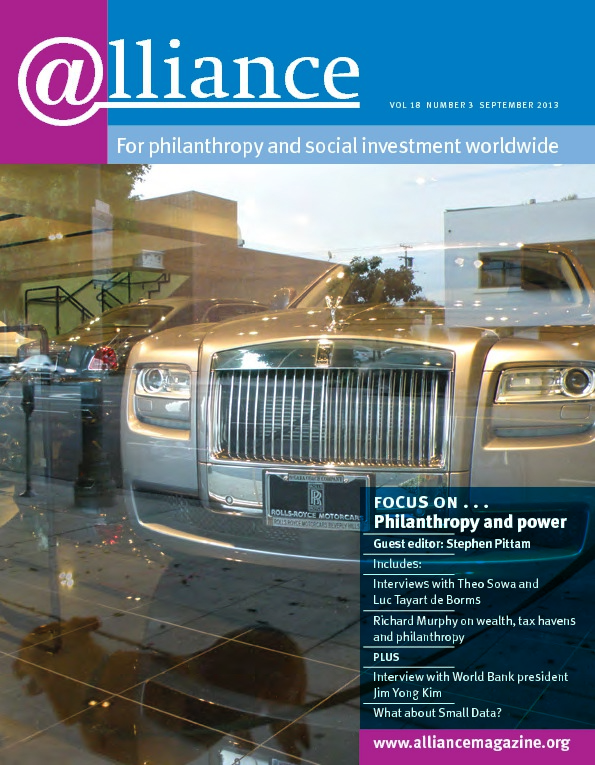Looking at Brazil, one of the countries mentioned in Matthew Bishop’s insightful article, there are high expectations that a growing number of billionaires will lead to an expansion of philanthropy. But we should not expect that it will follow the same paths as in Anglo-Saxon countries, where philanthropic tradition is deeply rooted. Brazil, a country widely known for its inequalities, still faces the challenge of increasing the amount of money given to public causes – as well as developing its own philanthropist role models.
There are enormous tax and legal barriers to a more conducive environment for philanthropy in Brazil. First and foremost, Brazil enjoys a very low rate of inheritance tax, which operates as a disincentive for the establishment of endowed foundations – and oddly the same tax applies to charitable donations.
Wealthy people in Brazil are, therefore, less inclined to follow in the steps of Bill Gates or Warren Buffett in committing a large portion of their wealth to charity. Rather, they have been using their wealth, skills and influence to contribute to more effective public policies in areas such as education and the environment.
Particularly in the light of the recent wave of street protests in various Brazilian cities, it is difficult to predict how public perceptions of philanthropy will evolve. But it is probably safe to say that philanthropy does not enjoy a very high reputation, being often linked to assistencialist practices that hardly produce actual change. And the new generations of wealthy people tend to follow different paths, engaging themselves in promoting impact investing or developing market mechanisms for a social purpose.
If there is a fear of ‘growing plutocratic influence’, a point well made by Bishop, it could grow regardless of any philanthropic activity. In fact, if philanthropy is capable of producing real transformation, it may well contribute to a more favourable public perception of the super-rich. The actual impact produced by their actions may be the critical element in swinging the balance one way or another.
Andre Degenszajn
Secretary-General, GIFE





Comments (0)